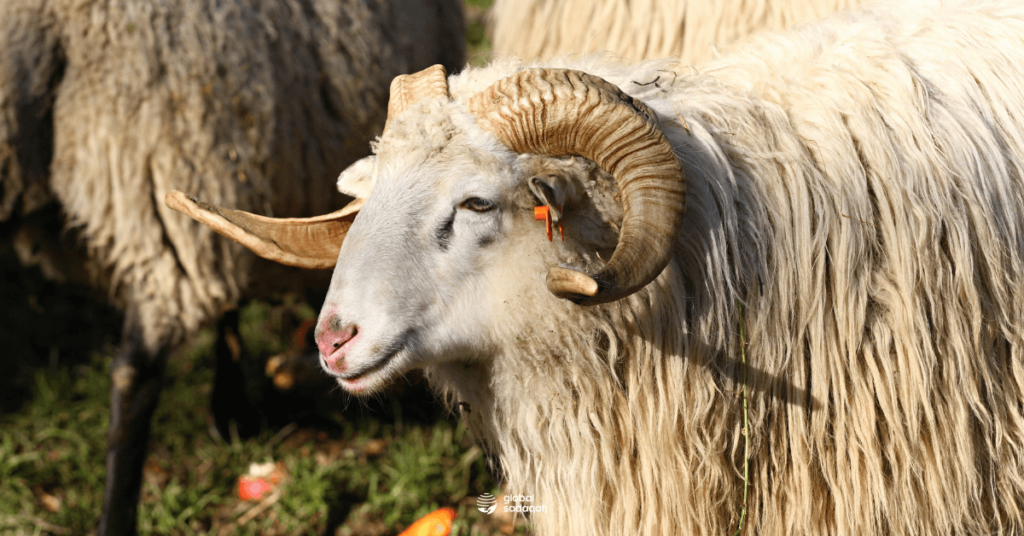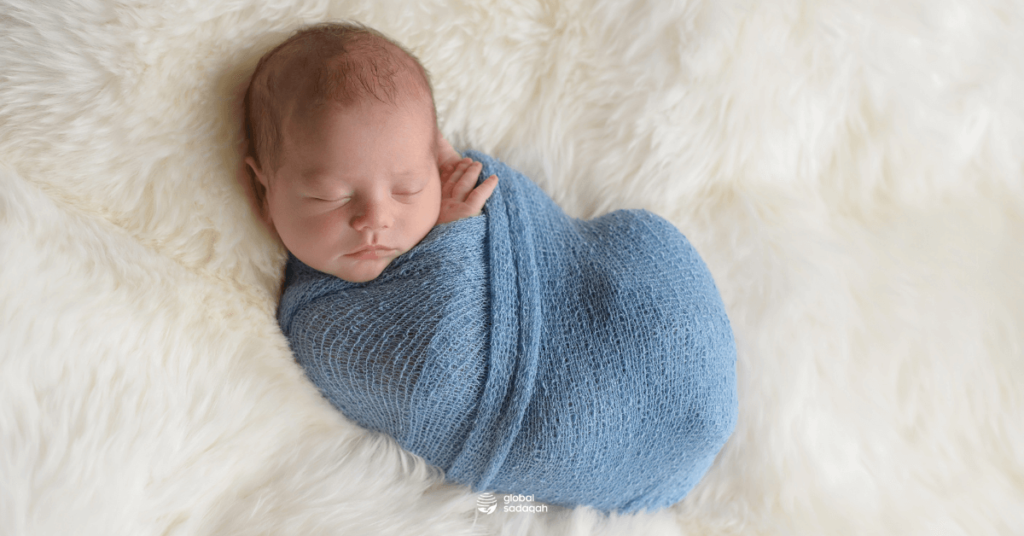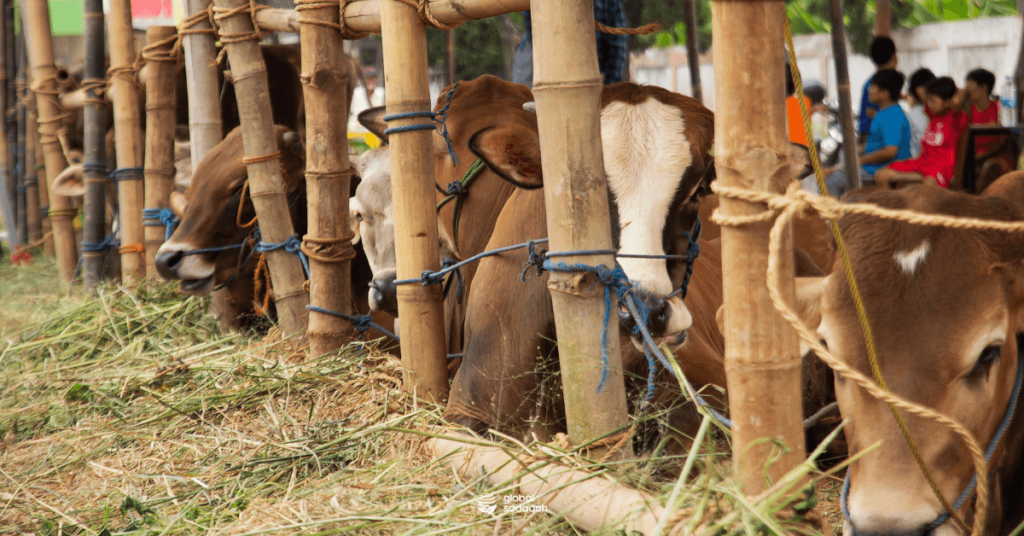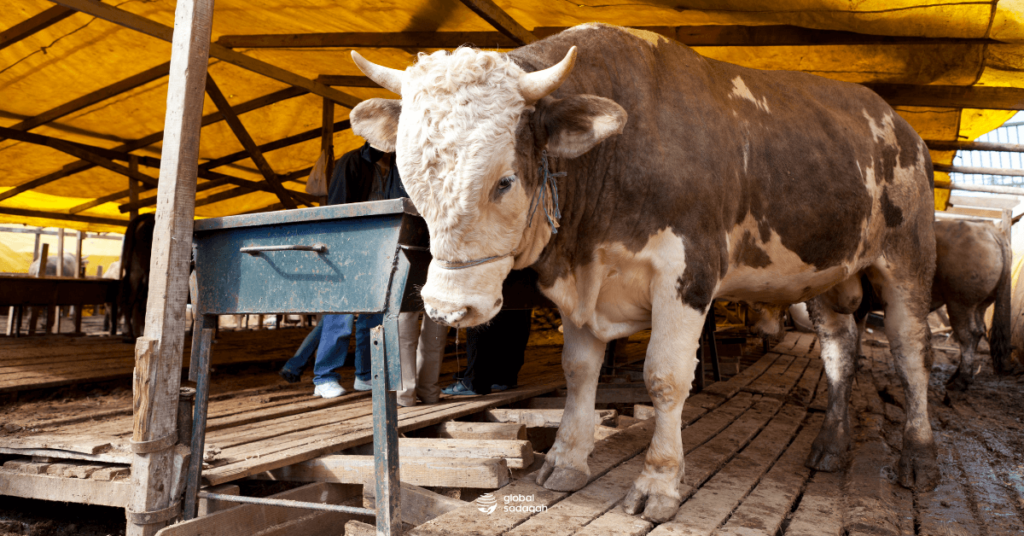Qurban and aqiqah are both an act of sacrificing a livestock animal for the sake of Allah. They are sunnah muakkadah, i.e. a highly recommended act for those who have the financial means to do it. While these two have some similarities, they are two different acts of worship (ibadah) in Islam.
Let’s take a look at some of the differences between qurban and aqiqah from four angles.
1) Significance of Qurban and Aqiqah
Qurban
The act of qurban is to commemorate the divine sacrifice made by Prophet Ibrahim for the sake of Allah. In his dream, Prophet Ibrahim was ordered to sacrifice his son, Prophet Ismail, whom he was only bestowed upon within his old age, after many years of longing for a child.
Learning that the dream was a command of Allah, he took his son to the top of mount Arafah, without hesitation, to prepare for the sacrifice. He explained to his son, whom he loved dearly, about the dream.
In obedience, Prophet Ismail accepted the decree of Allah that he must be sacrificed. Prophet Ibrahim then blindfolded himself to ease his heavy heart while carrying out the slaughtering. As Prophet Ibrahim was about to begin the sacrifice, Allah the Almighty replaced his son with a ram, and his son was left unharmed.

The event was a test of Prophet Ibrahim’s obedience to Allah, which he had greatly demonstrated. In honour of his devotion, Allah named him ‘Khalillullah’ in the Quran, which means an intimate friend of Allah.
“Who can be better in religion than one who submits his whole self to Allah, does good, and follows the way of Ibraham the true in faith? For Allah did take Ibraham for a friend.” [Surah an-Nisa: 125]
The act of qurban serves as a reminder of Prophet Ibrahim’s full submission to Allah, which is the essence of Islam itself.
Offer your qurban in just a few clicks via our Global Qurban Campaign on GlobalSadaqah!
Aqiqah
Aqiqah, on the other hand, is offered as a symbol of one’s gratitude (shukur) to Allah for the birth of a child. It was a practice by the Prophet ﷺ and his companions.

The prophet ﷺ said: “For a boy, there is an ‘Aqiqah. So spill blood for him and remove the harm from him.” [Tirmidhi]
Aqiqah is also part of the Abrahamic legacy that abolished sacrifices or rituals to deities other than Allah. The rituals associated with aqiqah can therefore be considered as a child’s initiation into the lessons of the Oneness of Allah (the concept of tawhid).
2) When to perform Qurban and Aqiqah?
Qurban
Qurban is performed during the first four days of Eid al-Adha, i.e. from the 10th to the 13th of the Islamic month of Dhul Hijjah. You can offer qurban every year if you have the financial means to do it.
Related: 10 Deeds to Practice in the First 10 Days of Dhul Hijjah
Aqiqah
In contrast, aqiqah can only be offered once in a lifetime. It is sunnah to perform aqiqah on the seventh day after a child is born. Samurah narrated that the Prophet ﷺ said, “The boy is held in pledge by his aqiqah; slaughtering should be done for him on the seventh day, he should be given a name, and his head should be shaved.” [Tirmidhi]
If the child’s parents or guardians cannot offer it on the seventh day, they can do it on the 14th day after the child is born. If that is missed too, they can do it on the 21st day, or any subsequent seventh day from the child’s birth until the child hits puberty (baligh).
However, when the child reaches puberty before the aqiqah is performed, then it is sunnah for the child to perform it for himself.
3) What animals can be sacrificed for Qurban and Aqiqah
Qurban
Livestock animals that can be sacrificed for qurban include goats, sheep, cows, and camels. They can be male or female, as long as they are fit as a fiddle and are free from any defects.
The goats and sheep must be at least one year old, cows two years old and camels five years old.
Different qurbani animals make up a different number of shares. Smaller animals such as goats and sheep count as one qurban share, while larger animals like cows and camels count as seven shares.
There is no limit to the number of shares, or how many animals you would like to sacrifice in any given year. You can offer as many shares, or as many qurbans as you wish.

Related: Your Guide to Qurbani 2021
Aqiqah
On the contrary, it’s sunnah to sacrifice one goat or sheep for a girl and two goats or sheep for a boy for aqiqah. This is based on a hadith narrated by ‘Aishah that said, “The Prophet of Allah ﷺ commanded us to sacrifice two sheep for a boy’s aqiqah and one sheep for a girl.” [Ibn Majah]
During his time, the Prophet ﷺ sacrificed two rams each for the aqiqah of his two grandchildren, Hasan and Husain.
Ibn Abbas narrated that “The Prophet of Allah ﷺ offered an aqiqah for al-Hasan and al-Husain, may Allah be pleased with them, two rams for each.” [An-Nasa’]
Alternatively, according to mazhab Shafie, it is permissible to replace a goat with parts of cow or camel, as long as it’s still in accordance with the requirements of slaughter applicable for aqiqah. The majority of scholars are of the opinion that should be one whole animal instead of part of an animal.
4) How should the Qurban and Aqiqah meat be distributed?
Qurban
Meat from qurbani animals should be distributed raw and divided into three parts. One part for the one performing the qurban, one part for their family and friends, and the last part for the less fortunate.
Aqiqah
Conversely for aqiqah, it is best (mustahabb) to cook the aqiqah meats first, including the portions that are to be given to charity (sadaqah). But one may also distribute it raw, or invite guests to enjoy meals from the aqiqah meats at the host’s place.
To recap, here’s a table of comparisons between qurban and aqiqah for your easy reference.
| No | Qurban | Aqiqah |
| Similarities | ||
| 1 | Sunnah muakkadah (highly recommended act) | |
| 2 | An act of sacrificing a livestock animal for the sake of Allah | |
| Differences | ||
| 1 | A reminder of Prophet Ibrahim’s full submission to Allah, which is the essence of Islam itself. | A symbol of one’s gratitude (shukur) to Allah for the birth of a child |
| 2 | Performed during Eid al-Adha, from the 10th to 13th of the Islamic month of Dhul Hijjah | Sunnah to perform aqiqah on the seventh day after a child is born |
| 3 | Highly recommended for those who have the financial means to offer it every year. | Can only be offered once in a lifetime |
| 4 | No limit. You can offer as many shares, or as many qurbans as you wish. | The sunnah for aqiqah is one goat/sheep for a girl and two goats or sheep for a boy. |
| 5 | Meat from qurbani animals is best distributed raw. | Best (mustahabb) to cook the aqiqah meats before it is distributed. |
Offer your qurban in just a few clicks via our Global Qurban Campaign on GlobalSadaqah!

